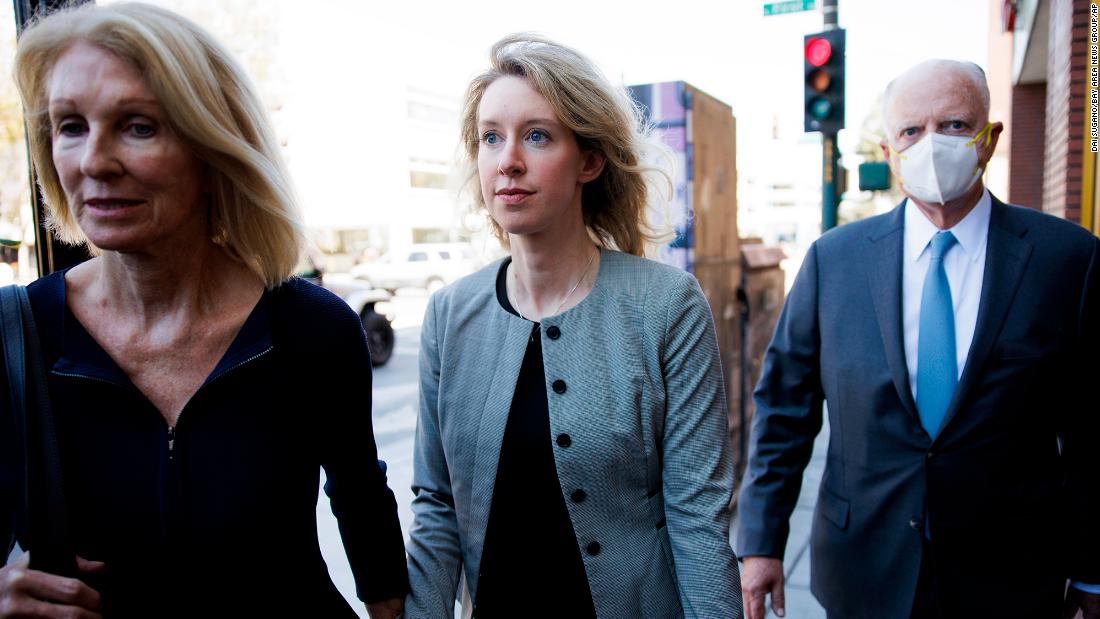
In a court filing on Tuesday with the United States District Court for the Northern District of California, Holmes’ attorneys said Adam Rosendorff, a former Theranos lab director who was one of the government’s main witnesses, arrived at her home on August 8 asking to speak with her.
According to the filing, Rosendorff did not interact with Holmes but did speak to her partner Billy Evans, who recounted the exchange in an email to Holmes’ lawyers shortly after.
“His shirt was untucked, his hair was messy, his voice slightly trembled,” Evans wrote about Rosendorff. According to Evans’ email, Rosendorff “said when he was called as a witness he tried to answer the questions honestly but that the prosecutors tried to make everybody look bad.”
The former Theranos lab director also “said he felt like he had done something wrong,” Evans wrote.
During his testimony last October — which lasted more than six days — Rosendorff said he departed the company feeling “very skeptical” about the accuracy and reliability of its tests. He testified he felt it “was a question of my integrity as a physician” to not stay at the company and continue to endorse test results he “didn’t have faith in.” He said he “came to believe that the company believed more about PR and fundraising than about patient care.”
Rosendorff and federal prosecutors who tried the case against Holmes did not immediately respond to a request for comment.
In their Tuesday filing, Holmes’ lawyers said Rosendorff’s conversation with Evans constitutes new evidence that warrants a fresh trial.
“Dr. Rosendorff’s statements reflecting his concerns with the government’s presentation of his trial testimony, along with his comments that bear on Ms. Holmes’ intent, put the integrity of the jury verdict against Ms. Holmes in grave doubt,” they wrote. “The Court should grant a new trial or, at the very least, order an evidentiary hearing.”
Their trials marked the final chapter for Theranos, a startup once valued at $9 billion and lauded for its promise to upend the healthcare industry. Theranos claimed its technology could accurately and efficiently test for conditions like cancer and diabetes with just a few drops of blood. With that promise, it attracted $945 million in financing, a board of well-known political figures, and prominent retail partners.
Then came the Journal investigation into the company, which called into question the company’s testing methods and the capabilities of its technology. In 2018, Holmes and Balwani were each charged with a dozen counts of wire fraud and conspiracy to commit wire fraud.
Both pleaded not guilty and will be sentenced later this year, with Holmes’ sentencing hearing set for mid-October and Balwani’s scheduled to take place in mid-November.
